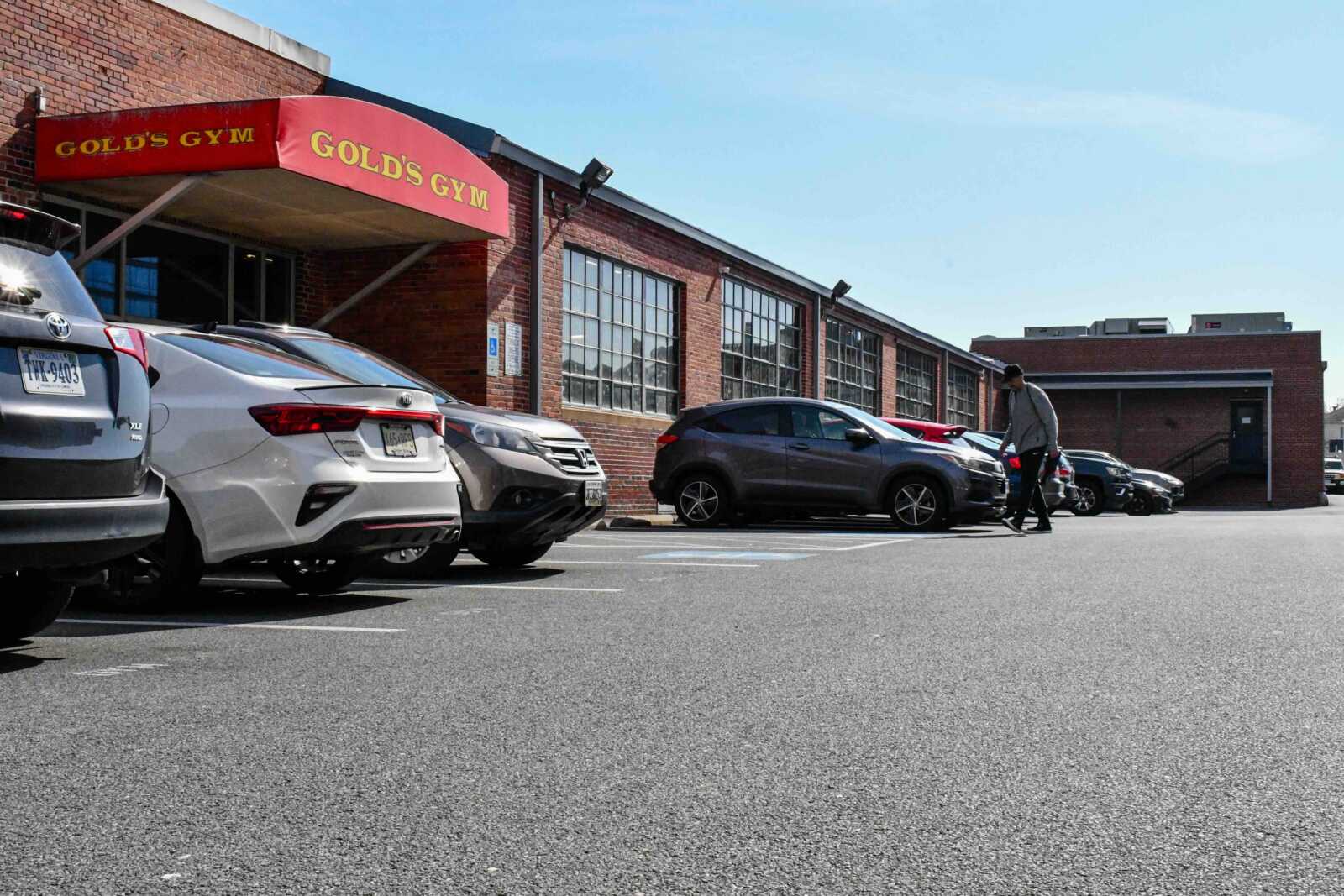
Looser parking requirements could encourage more gyms and shops to fill Arlington’s commercial real estate vacancies, the county believes.
The Arlington County Board on Saturday unanimously voted to have staff research possible changes to the Arlington County Zoning Ordinance and advertise requests to amend it. In addition to slashing parking minimums for gyms, the county is considering whether to allow parking lots to designate more spaces for compact cars.
Public hearings about these requirements are scheduled to take place in April. The county argues some of the regulations — set decades ago — may be outdated and an aggravating factor for Arlington’s rising commercial vacancy rate.
For instance, Arlington fitness centers must offer five times more parking spaces per square foot of floor area than other retail or service businesses. This is more restrictive than requirements in Alexandria and Fairfax County and, according to a report, a holdover of transportation patterns from the 1960s.
“The minimum parking ratio for athletic and health clubs is a standard set decades ago and does not reflect current land use and development patterns, public transportation access or regulations in Arlington,” the report says.
County staff noted that many potential office tenants look for nearby fitness facilities when selecting a location. Fitness centers also tend to attract establishments such as spas and physical therapy centers.
“Minimum parking ratios… can derail an athletic or health club from filling high demand, ideally located vacant space,” the report says.
The document also argues that the county should reconsider a 2002 regulation that disallows compact car spaces in areas “that were assumed to have a high turnover.” This includes retail stores, grocery stores and medical and health care facilities, as well as anywhere “where there is likely to be a large number of elderly [people].”
“Staff believes this prohibition is worth reexamining,” the report says.
Finally, another county report argues that loosening off-street parking requirements could help some shopping centers and small commercial sites attract new tenants. It notes that current parking regulations, as well as insufficient shared parking within commercial and mixed-use districts, can create barriers for businesses.
“This is especially true when multiple businesses are required to use the available parking on-site with limited capacity,” the document says. “Expanded shared parking regulations can be an effective measure to help address similar on-site parking deficiencies.”
All of these initiatives are part of a larger effort to combat Arlington’s high commercial vacancy rate. In another bid to boost Arlington’s commercial resiliency, the Board authorized public hearings for April about whether to loosen restrictions on large media screens in outdoor areas.
Later this year, the Board is expected to discuss guidance on office-to-apartment conversions as well as potentially simplifying the major and minor site plan amendment process, which landowners must navigate when repurposing or renovating large development projects.
Within the next several months, Board members are also expected to consider plans to facilitate changes of use within existing buildings and adopt a more flexible ordinance around signage.
Other possible ordinance changes concern storage uses at office buildings as well as the process for repurposing underutilized parking spaces.

